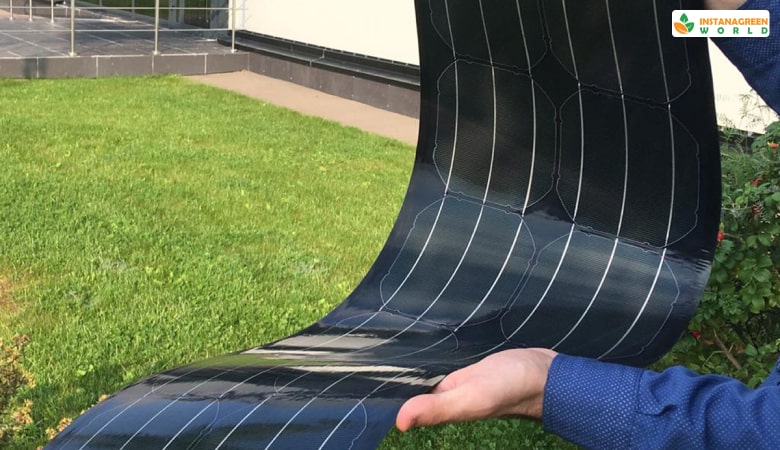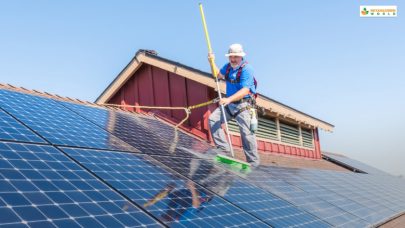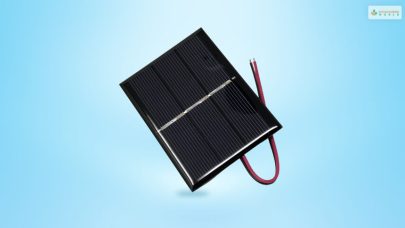Usually, we all know solar panels as very heavy-weight technical equipment. This is the reason sometimes maintenance becomes very problematic. Even when you want to move the whole panel from one area to another area, the large size of the panels is becoming a severe issue. But we all know the advantages of using solar panels. Hence the weight of the solar panels should never be an issue of concern. This is why thin film solar panels
are the best solutions for solar panel users.
The name of the solar panels already tells you these panels are exclusively lightweight. But that is not all for knowing the uses of solar panels. You have to start with the definition of solar panels.
What Are Thin Film Solar Panels?

Thin-film solar cells are a type of cell that converts sunlight energy into electrical energy. The thin-film cells were initially invented in 1970 by the researchers of the Institute of energy conversions at the Delaware university.
Since the early 21st century, the global thin-film market has been in a moving state, and from that time, thin film solar panels have been available for public use. The main advantages of using these panels are they are not costly and; lightweight, so the transportation is much more accessible.
Curious about knowing the advantages and the disadvantages of using these solar panels? Let’s see the pros and cons of using these panels.
Features Of Thin Film Solar Panels:
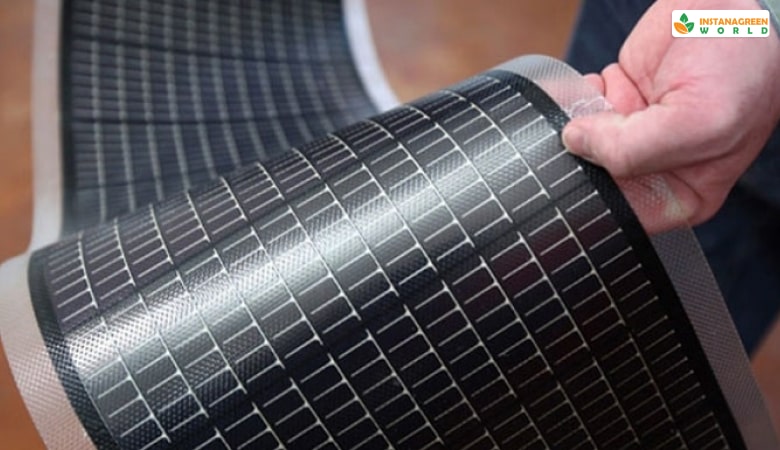
Every thin film solar cell is made with more than a single thin layer of PV materials. In the market, three are two types of supporting materials for the thin film solar panels available. The semiconductor charters of the panels are the main features of the panels. Apart from these, here are some of the other elements of thin film solar panels.
- These thin film solar panels are lightweight and flexible.
- The installation process is a little complicated as it does not come with the frames.
- The working methods are similar to the silicon panels.
- These panels are built with a very minimum amount of silicons. So the manufacturing process is very easy in comparison to the other silicon-based solar panels.
- These panels are pretty compatible with installation in large areas.
Pros Of Thin Film Solar Panels
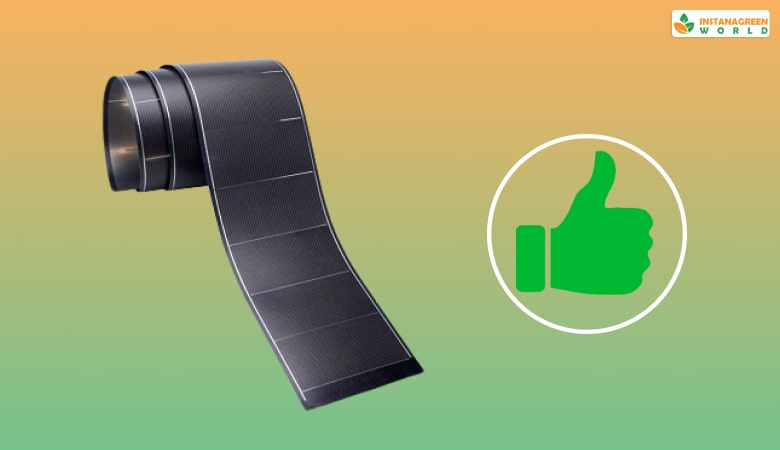
Why are thin solar panels most convenient for users? Here are the pros of using thin film solar panels. Read it and know why these panels are the best pick for thin film solar panels residential.
- This is a very cost-effective solution.
- The installation process is straightforward, and every panel is lightweight.
- The material consumption rate is very low.
- The panels are lightweights, so it becomes effortless if you want to transport them.
- Even though these solar panels are lightweight, these solar panels are compatible with any type of weather.
- Temperature-resistant natures are making these panels suitable for any hot and cold weather.
- These flexible thin film solar panel installations are easy on larger surfaces.
- Thin solar panels are less susceptible to dirt and other pollution material.
Cons Thin Film Solar Panels
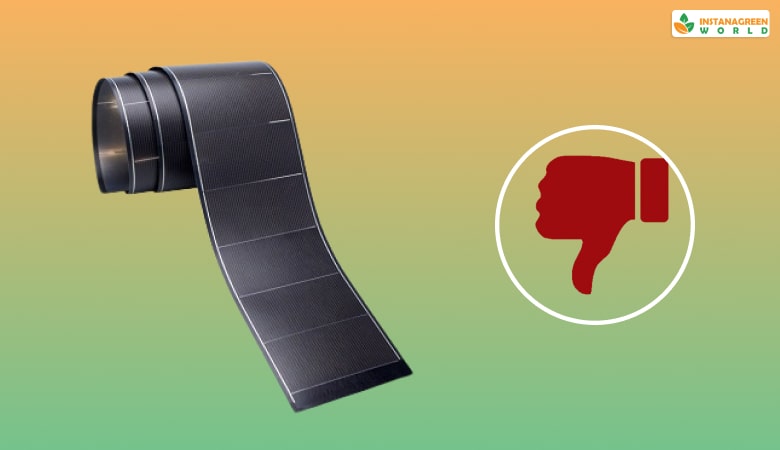
The thin film solar panels are a cost-effective and lightweight solution. But we all know every technical equipment is not an error-free solution. There are always some disadvantages of technical gadgets.
Here are some of the cons of using thin-film solar panels.
- Compromisable efficiency level.
- Lifetime is short, unlike the other type of solar panels.
- Frames are not there, so installations are becoming a little challenging.
- Intense initial degradation is a serious challenge during the installation.
You can see why these thin film solar panels are the most popular panels even though the manufacturing cost and not very high and efficiency levels are not also very huge. People prefer these panels because of the lightweight and the temporary solutions.
Where Can You Use The Thin-Film Solar Panels?

These solar panels are built to comprise amorphous solar cells. These cells are easy to many-manufacture and lightweight in nature. And these panels are very easy to install. Theses process takes less time and is very suitable for all all-areas and environments.
Here are the working methods of the thin film solar panels. Read it and learn about the working process of thin-film solar panels.
Best For The large Scale Application:
You Can Install Thin Films In Any Rooftop area. The thin film solar panels for metal roofs or any types of roofs for commercial buildings are a perfect choice. Many of the solar plant business handlers are using these solar panels to power up their whole plant. So there is no doubt these solar panels are always the best pick for commercial use.
These Panels are Appropriate For The Personal Use
The thin film flexible solar panels are pretty useful for domestic use and residential use. For example, if you like to charge your phone or laptop. Then during the time of power cut, you can charge your mobile phone or laptop. These are the main reasons why these panels are becoming more popular solar panels in remote residential areas. You can complete every type of residential work through these solar panels.
Applications Of The Thin Film Solar Panels
The thin-film solar panels are always the best pick for any residential use. Here are a few areas and spaces where you can install it without facing any problems.
- Thin film solar panel installations require a large area. So you can easily install these on the top of the commercial buildings.
- You can use it in the forest as well as in remote areas.
- They are used to power the street lights and the traffics.
- You can install it on the large-size steel water tanks for heating or automatic pumping in the water.
Frequently Asked Question:-
Ans: The thin film solar panels are less efficient. But the capacity is in the moderate stage. The efficiency levels depend on the PV material of the panels. To increase the efficiency, the ratios should be near about 16% to 18%.
Ans: The average cost of installations is $3,200 to $7,100. So you can see the cost of the installation is not also very high in comparison to the other silicon-based panels.
Ans: Sharp is a global leader in thin-film. They have been in the business for over 50 years. And they are also the top manufacturers of Si technology.
Ans: The thin cells have reached an efficiency level near about 18 percent from the manufacturing unit. But more often you are using the semiconductor material. The perfection labels will increase.
Conclusion:
The thin-film solar panel is very compatible for small commercial use and other types of business purposes. I know for big industries, this method is not going to work. But for the small scale industry and the domestic use, this business this power system is going to the worth spending. What is your idea about the thin film solar panel? Let us know your vision and opinion through the comment sections.
Read Also:

